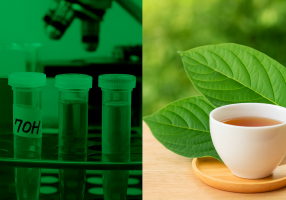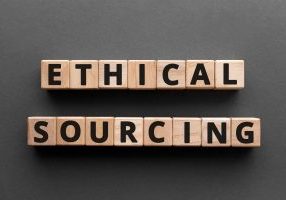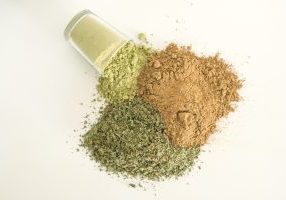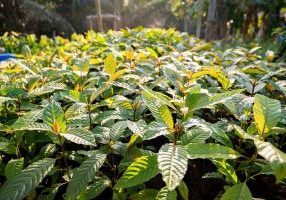Fair trade practices are standard in many worldwide industries. Coffee and chocolate manufacturers, for example, may find that acting in accordance with fair trade groups is in the best interests of their business and the industry at large.
Do organizations seeking fair trade practices in the Kratom industry exist, and if so, does Left Coast Kratom follow their directives?
The idea of fair trade in the Kratom industry is not one that is commonly discussed, but it is one that we’d like to talk about today. Fair trade is an exciting concept that can be applied in many ways, and we’d like to talk about how we consider it important.
What Is Fair Trade?
The first thing to understand is exactly what fair trade is.
Fair trade standards are, in practice, business principles. When using these standards, you are doing your best to guarantee that the health, human rights, economic stability, and independence of producers worldwide are prioritized. Avoiding things like forced labor or paying below wage standards must be avoided, and some practices need to prioritize environmental sustainability as well.
Fair economic practices are often focused on what benefits are given to small producers to enable them to develop, have economic stability, and continue doing the work they are doing.
What About Fair Trade Labels?
Fair trade labels are given out by organizations that have been developed to certify businesses as fair trade in a particular sector. For instance, there are fair trade programs that work specifically with coffee vendors or those who work on traditional South American apparel.
Each of these organizations and specific labels may have some variety of principles depending on where they work, but there are always some commonalities as well:
- Safe working conditions
- Fair payment
- Accountability
- No discrimination
- Sustainability
- Economic stability
No matter what industry is being explored for fair trade possibilities, all six of these things will still need to be present to create the best working supply chain possible.
Why Does Fair Trade Matter?
Fair trade is important for improving conditions for those working in poverty for others’ profit worldwide. Marginalized individuals in many countries are exploited for their labor, goods, or resources, and they are often unable to get out of this cycle without outside support.
Fair trade principles prioritize enabling these individuals to be able to set up a better economic situation for themselves while also ensuring their health and safety. Small businesses and those working at companies will find themselves more safe and able to have a future to look forward to.
Additionally, fair trade helps to improve the economic and living standards around the world. People from larger nations with higher capital can use their money to support those around the world simply by buying fair trade, making a big difference in the worldwide economy.
Are There Fair Trade Labels For Kratom?
While several non-profit organizations offer fair trade labels, there are not any specific labels in action in the Kratom industry. We have high hopes that this will soon be changing though!
The Confusion Of Fair Trade Labels
Fair trade labels can be a bit confusing because individual memberships and organizations give them out, so the vetting process for each group can be different. A fair trade label on one product is not always equitable to a label on another product.
To really understand what a label is saying about any given product, you must understand how the label is given and what guarantees it offers.
The Problem Of Bulk Products
Bulk products like Kratom and tea are often collected from a huge number of growers and harvesters. Suppliers in the Kratom industry have said that more than one thousand harvesters can collect a single order of Kratom leaves. This makes it hard to verify with fair trade organizations even when you want to do so.
As such, certifying bulk products as fair trade is difficult. While many Kratom companies have a high level of commitment to asking their supplier to adhere to fair trade practices, it is not always possible to certify that this is happening.
Future Kratom Fair Trade Labels
It is possible that some organizations will work together to create fair trade guidelines for the Kratom industry as it continues to grow. It is also possible that existing organizations will find ways to check Kratom businesses for fair trade practices.
Ultimately, both of these things will take time!
Verifying each step of a supply chain this deep is time-consuming, so figuring out how to implement a labeling program efficiently will not be a speedy process.
Does The GMP Program Incorporate Fair Trade?
The GMP program, a good manufacturing program run by the American Kratom Association, does not specifically mention any fair trade practices at this time.
That being said, the guidelines in the AKA’s GMP program does require Kratom companies to establish processes with their suppliers and ensure that their suppliers follow these processes.
While the processes talked about in the GMP are more focused on the safety of the Kratom itself, a Kratom company could include fair trade practices in their own arrangements with their suppliers.
Does LCK Care About Fair Trade Practices?
Companies like ours take time to ask our suppliers about the Kratom, who harvests it, and what is being done to ensure their industry’s long-term health. We want Kratom harvesters to be able to make a successful living at this job while continuing to supply us with Kratom for a long time, and we know that fair trade practices can help with that.
If you as a customer have a deep commitment to fair trade practices, you can always ask the Kratom companies that you patronize for more information about their stand about Kratom fair trade practices!
Remember, all companies that prioritize the health and safety of their customers and their suppliers will be willing to show how they are doing that. Here at Left Coast Kratom, we like to be as open with our customers as we can be. That is why we create educational articles like this one!










